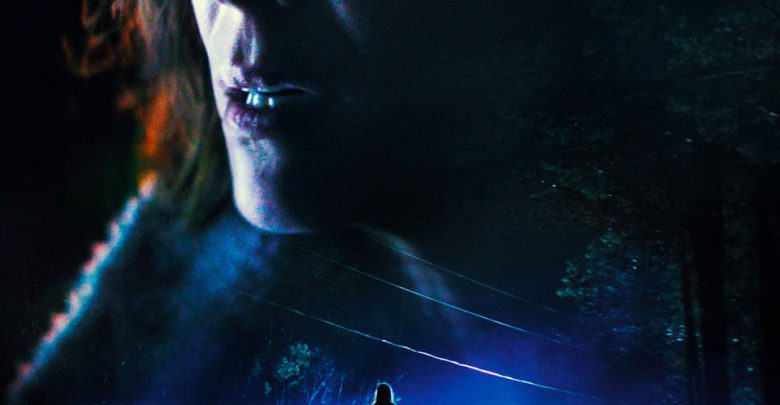Through the Glass Darkly (2020) Movie Download
Watch Through the Glass Darkly (2020) Movie Online

Through the Glass Darkly (2020) Movie Review
Through the Glass Darkly (2020), directed by Mick Davis, is a psychological drama that explores themes of love, grief, and the complexities of human connection through an unusual and haunting lens. The film is a slow-burn meditation on the blurred lines between reality and illusion, centered around a young woman named Catherine (played by Olivia Grace Applegate) who, after a life-altering tragedy, struggles with her perception of the world and her relationships with those around her. The film is both evocative and unnerving, relying on a minimalist approach to storytelling to create a deeply atmospheric experience.
Plot Overview:
Catherine, a talented but emotionally troubled artist, finds herself grappling with a profound personal loss. The narrative unfolds in a quiet, rural setting, where Catherine is trying to move on with her life after the death of a loved one, although the grief seems to persist in an overwhelming, almost otherworldly way. As she navigates this emotional turmoil, Catherine’s connection with those around her—her distant mother, her absent lover, and her enigmatic neighbors—becomes increasingly strained.
The title of the film, Through the Glass Darkly, references the idea of seeing the world through a distorted lens, and that is exactly what Catherine experiences. The film’s narrative explores the psychological fragmentation of her mind as she faces a breakdown of both her relationships and her grasp on reality. Is she being haunted by the past, or is she simply unraveling in the face of her trauma?
The plot is enigmatic and often leaves much to interpretation. As the story progresses, the lines between what is real and what is a manifestation of Catherine’s grief blur. A series of disturbing, surreal events unfold, pushing her to question whether she is truly seeing the world through a darkened glass or if something far more sinister is at play.
Themes:
The central theme of Through the Glass Darkly is grief and how it can distort our perceptions and interactions with the world. The film highlights how trauma, particularly the loss of a loved one, doesn’t just affect one’s emotions—it can warp a person’s understanding of reality itself. The “glass darkly” metaphor refers to the idea that Catherine’s view of the world is obscured by her pain, leaving her to navigate her life through a lens that distorts everything she sees.
Additionally, the film explores the theme of isolation. Catherine feels disconnected not only from others but also from herself. Her mental state isolates her from the people who try to help her, and the film makes a compelling case for how grief, when left unchecked, can lead to emotional and mental disintegration.
Another intriguing aspect of the film is its exploration of perception vs. reality. As Catherine becomes more immersed in her own mind, she begins to question whether the strange occurrences she experiences are manifestations of her inner turmoil or the result of something supernatural. This psychological tension is one of the film’s most effective tools, keeping the viewer in suspense as they, too, wonder what is real and what is imagined.
Performances:
The performance of Olivia Grace Applegate as Catherine is the heart of the film. Applegate brings depth and sensitivity to the role of a woman unraveling under the weight of her grief. Her portrayal of Catherine’s inner conflict is nuanced and grounded, making it easy for the audience to sympathize with her despite her sometimes erratic behavior. As Catherine moves through different emotional states—grief, anger, confusion, and vulnerability—Applegate captures the internal chaos with impressive subtlety.
Supporting performances are solid, though they don’t carry as much emotional weight. David Dastmalchian, who plays Catherine’s love interest, brings a quiet intensity to his role, but his character remains somewhat underdeveloped, leaving the audience more focused on Catherine’s journey. The film also features several secondary characters who provide context to Catherine’s backstory, but none of them are fully fleshed out. This lack of depth in the supporting characters, however, doesn’t detract from the emotional core of the film, which is entirely centered around Catherine’s personal journey.
Direction and Cinematography:
Mick Davis’s direction is deliberate and contemplative. The film is paced slowly, allowing the audience to dwell in the emotional and psychological spaces that Catherine inhabits. Davis does an excellent job of creating a sense of unease through atmosphere rather than relying on jump scares or overtly dramatic moments. The unsettling tone is built through subtle cues, such as lingering shots, cryptic imagery, and an ominous sound design.
Cinematography by Nirav Bhakta plays a major role in reinforcing the sense of disorientation and isolation. The film employs muted colors, especially dark blues and grays, which give the entire world a washed-out, claustrophobic feeling. This visual style enhances the sense that Catherine is trapped in her own mind, viewing everything through a grim and distorted perspective.
The camera work often focuses on close-up shots of Catherine’s face, emphasizing her emotional turmoil and the internal conflict she faces. There’s a constant feeling of being “trapped” in her world, and this is reflected in the framing, which often keeps Catherine isolated within the shot or surrounded by negative space. The use of shadows and reflections further reinforces the theme of seeing things through a “darkened glass.”
Sound and Music:
The film’s score is subtle but impactful. It uses minimalist music, which builds tension without being overbearing. The quiet moments are accompanied by ambient sounds—soft creaks, distant echoes, and the hum of nature—that add to the feeling of isolation. The sound design is effective in creating a sense of unease, especially in scenes where Catherine is unsure of what’s real and what’s imagined.
Flaws:
While Through the Glass Darkly is an atmospheric and haunting film, it can be a bit slow for some viewers. The minimalist approach to storytelling means that much is left to interpretation, and the pacing can sometimes feel drawn-out. Some viewers may find the ambiguity frustrating, as the film doesn’t offer easy answers or resolutions. The plot meanders, and certain narrative threads remain unresolved, leaving the audience to wrestle with their own understanding of the story’s meaning.
Additionally, while Olivia Grace Applegate’s performance is stellar, the lack of development in other characters means that Catherine’s emotional journey occasionally feels isolated, with less of an emotional payoff in the relationships around her.
Conclusion:
Through the Glass Darkly (2020) is a compelling psychological drama that delves deep into the complexities of grief, loss, and perception. It offers an emotionally raw experience that will resonate with viewers who enjoy introspective films, especially those with a psychological or surreal edge. The film’s deliberate pacing, haunting atmosphere, and strong central performance by Olivia Grace Applegate are its main strengths. However, the slow narrative and ambiguous nature of the story may alienate those looking for a more conventional or resolved film.
Ultimately, Through the Glass Darkly is a thought-provoking, haunting exploration of the human mind, and while its slow pace and abstract storytelling may not appeal to all, it provides an emotionally impactful experience for those who appreciate psychological films that leave space for interpretation.




